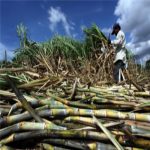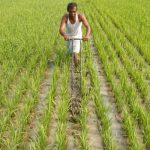Finnish biotech company Enifer has announced that its proprietary PEKILO® fermentation technology will be deployed for the first time in Latin America in collaboration with FS, one of Brazil’s leading producers of ethanol.
The project represents a significant step in the internationalization of PEKILO®Pet and PEKILO®Aqua production, marking the first time the process will operate outside Europe, as well as the first use of corn ethanol-derived thin stillage as feedstock for the production. FS is now working to construct an industrial process in pilot scale for the Brazilian market after validating their thin stillage as a feedstock for PEKILO®Pet and PEKILO®Aqua mycoprotein production.
PEKILO®Pet and PEKILO®Aqua mycoproteins are nutrient-rich ingredients produced through a biomass fermentation process that utilizes a unique fungal strain, akin to the techniques employed in brewing or producing soy sauce. This process yields ingredients that are rich in protein (60%) and beta-glucan fiber, low in fat and carbohydrates, and highly palatable and digestible sources of complete protein. In pet nutrition, the micronutrients and water absorption properties of PEKILO®Pet make it an ideal ingredient that allows pet food companies to offer consumers innovative new products while reaching their own sustainability goals.
“Transferring this process across the Atlantic to a new continent and using a new agricultural side stream is a significant validation of the flexibility and robustness of the PEKILO® fermentation technology,” said Simo Ellilä, CEO and co-founder of Enifer. “It shows that PEKILO® can deliver consistent performance from a wide variety of raw materials and in very different industrial settings,” he continues.
FS’s pilot project can produce approximately a combined 500 tonnes of PEKILO®Pet and PEKILO®Aqua annually. The fermentation process will be directly integrated with FS’s ethanol production, utilizing side streams from existing operations to maximize resource efficiency and advance circular economy. Currently, FS uses thin stillage from ethanol production to create DDG (Dried Distillers Grains) for animal feed. By integrating fungal cultivation directly into its ethanol production, the initiative reinforces FS’s ongoing efforts to optimize its industrial processes and extract maximum nutritional value from second-crop corn, complementing its already well-established DDG production.
“This project reinforces our commitment to innovation, science, and sustainability. We are adding extra value to second-crop corn by developing a relevant and innovative solution for animal nutrition, using a pre-existing raw material without compromising DDG production. This is a significant technological advancement for the sector” says Rafael Abud, CEO of FS.
To enable the scale-up of the production, FS has approved the project under the Mais Inovação Brasil program, which supports innovation through public funding and subsidies. The initiative will receive R$9.8 million in funding from FINEP (Financiadora de Estudos e Projetos), the Brazilian innovation agency. The product will be marketed to the animal nutrition industry in Brazil as well as other countries, such as Ecuador and Chile, who are major producers of shrimp and salmon, respectively.
“With this funding, we will advance key stages related to fungal fermentation, enabling us to move toward industrial production. We will now implement our pilot plant, learn how to scale its operation and test the market with high-performance functional solutions for animal nutrition” said Daniel Lopes, VP of Sustainability and Business Development at FS
Once operational, the industrial plant could reach a production capacity of 10,000 tonnes annually, making it a significant new source of sustainable protein in Latin America.
Currently, FS uses thin stillage to produce DDG (Dried Distillers Grains) for animal feed. By applying the PEKILO® process, FS will generate an additional scientifically and technologically effective solution for animal nutritionwithout displacing current production.The resulting mycoprotein produced is particularly well-suited for use in pet food and aquaculture, where the demand for sustainable, traceable and high quality protein sources is increasing.
The Brazilian initiative is part of Enifer’s broader scale-up trajectory. In Finland, the company is finalizing the construction of its first full-scale PEKILO® production facility, backed by €33 million in funding and designed to produce up to 3,000 tons of high-quality mycoprotein ingredients annually. With operations now underway in both hemispheres, the PEKILO® process has been proven to function across a wide range of raw materials, climates, and industrial infrastructures.

















